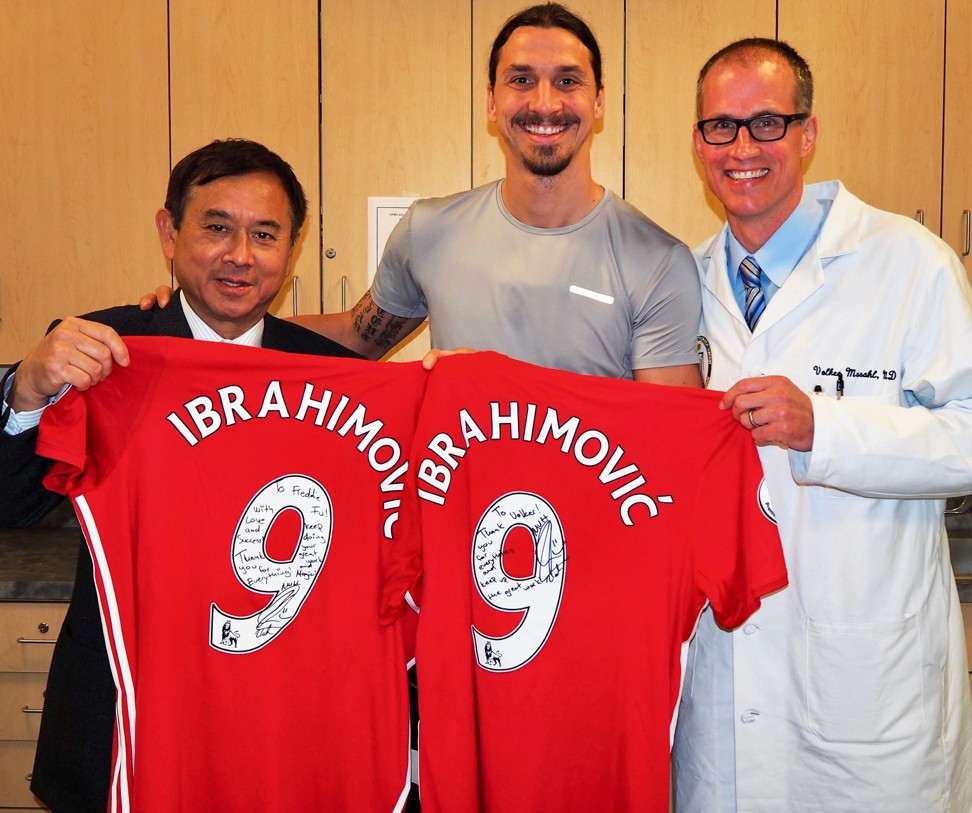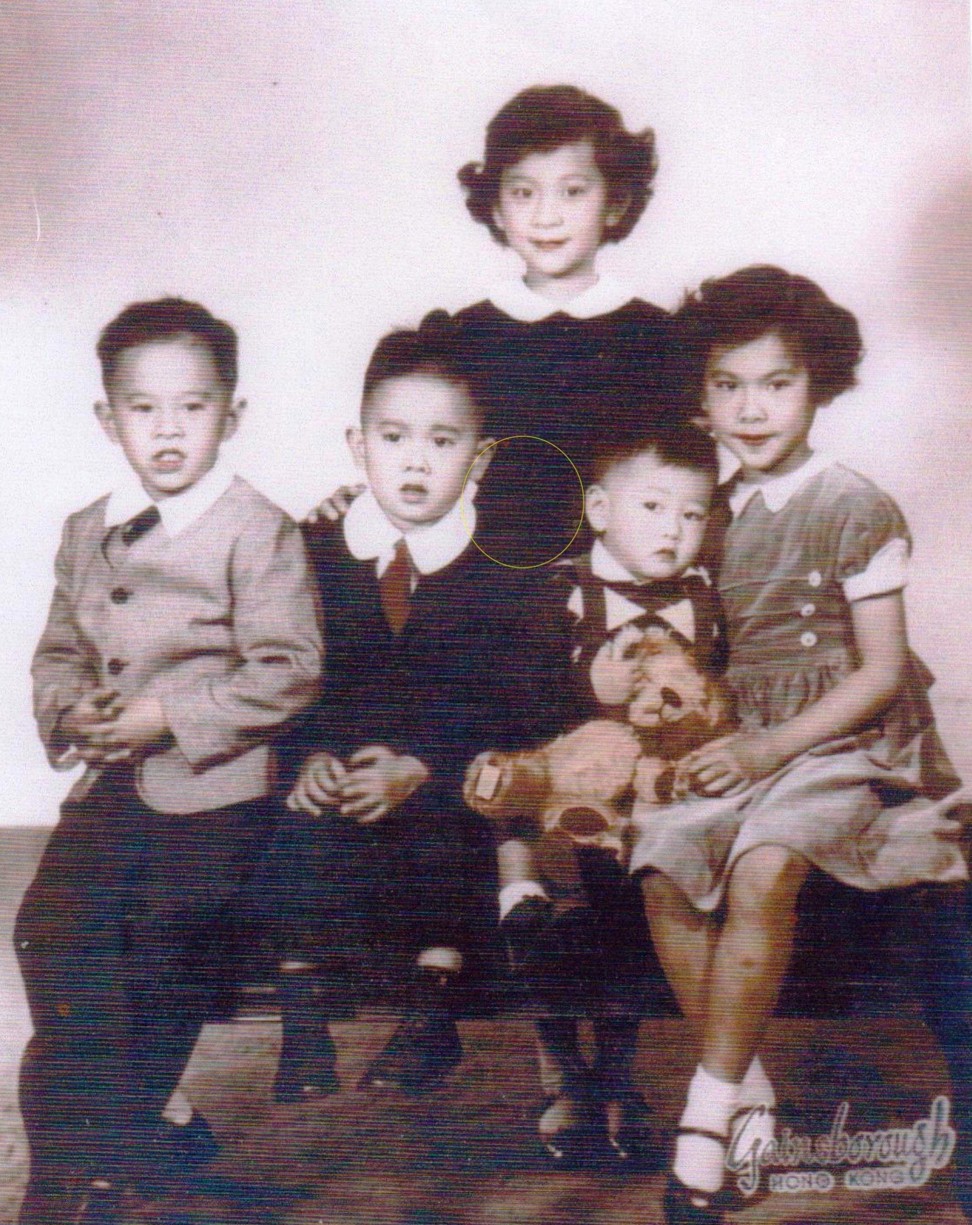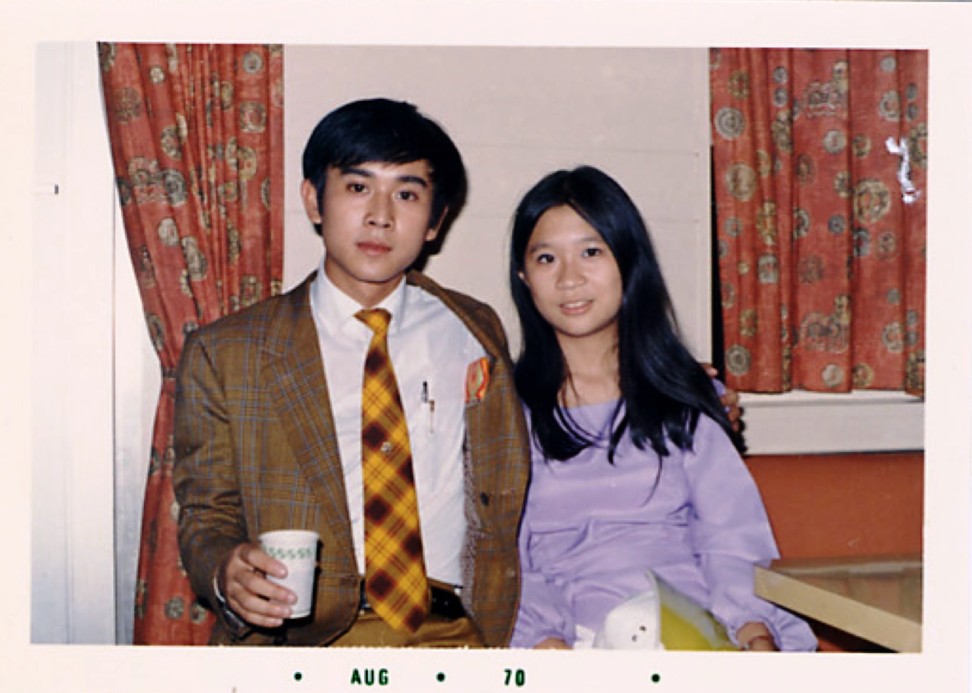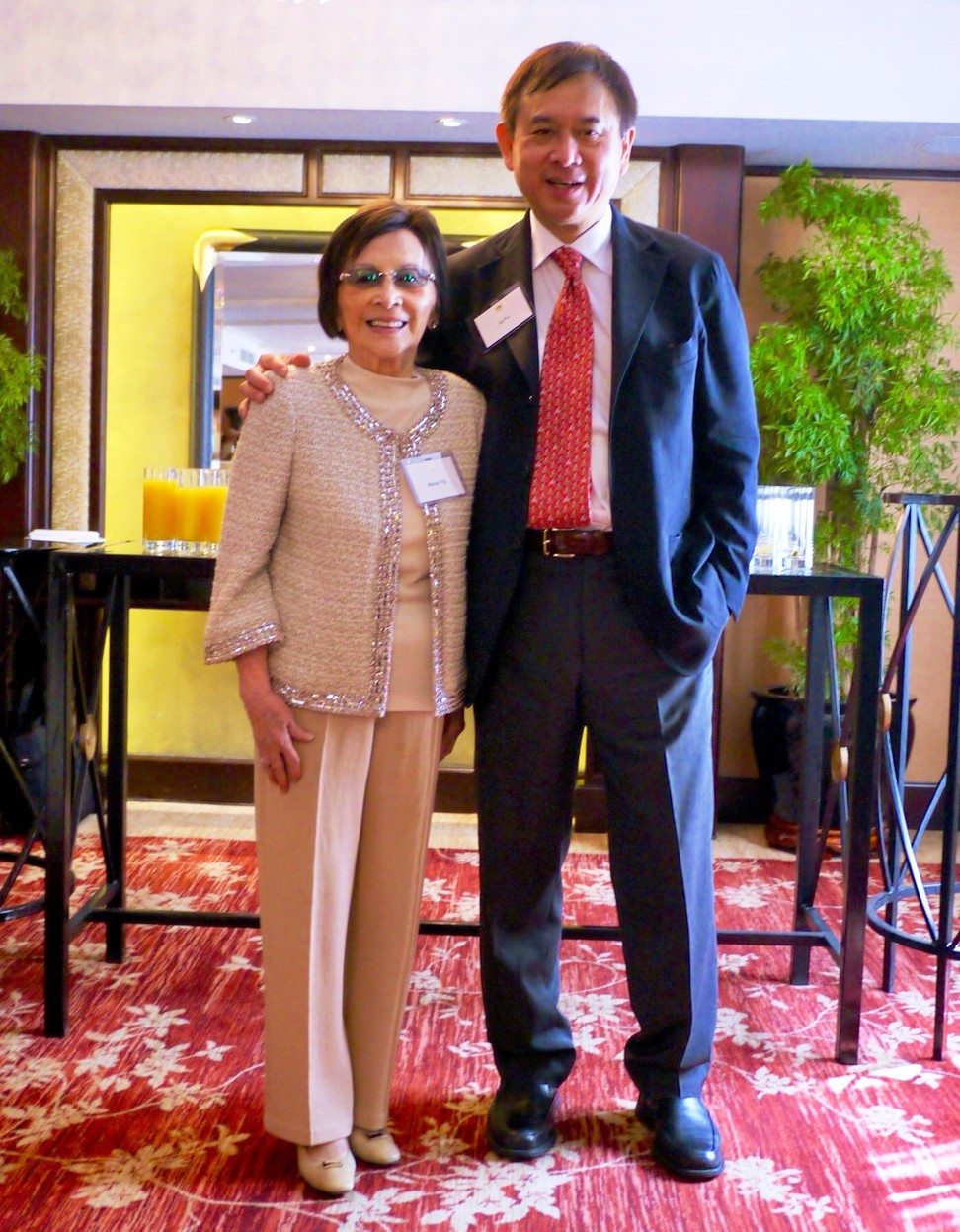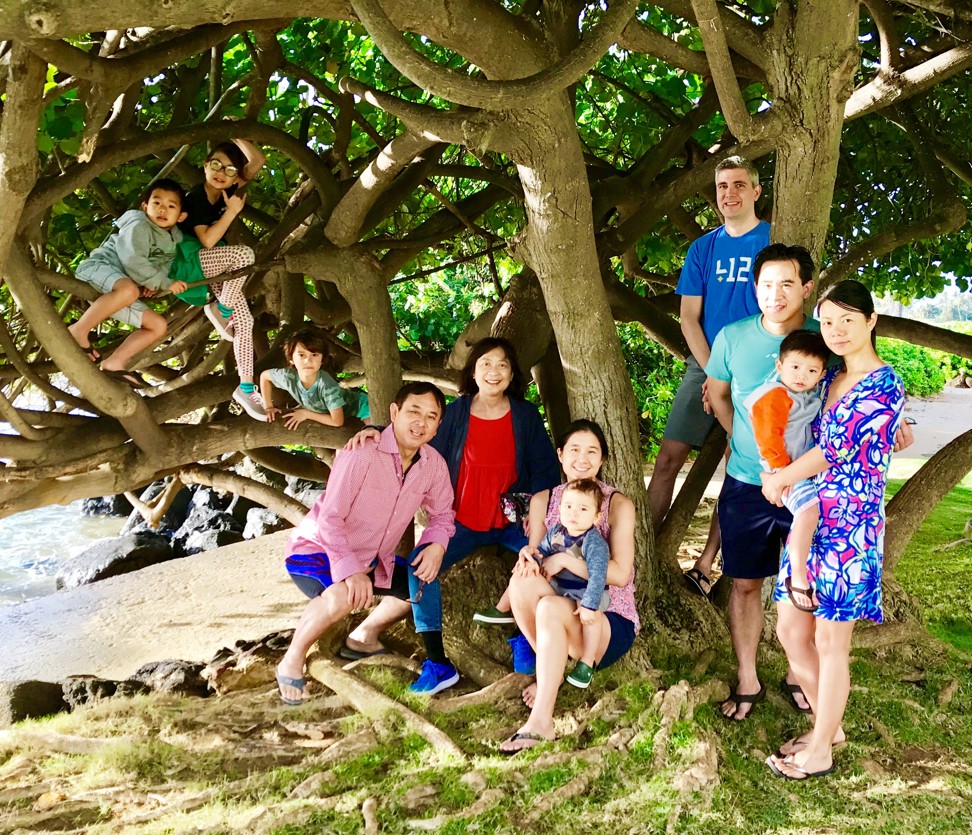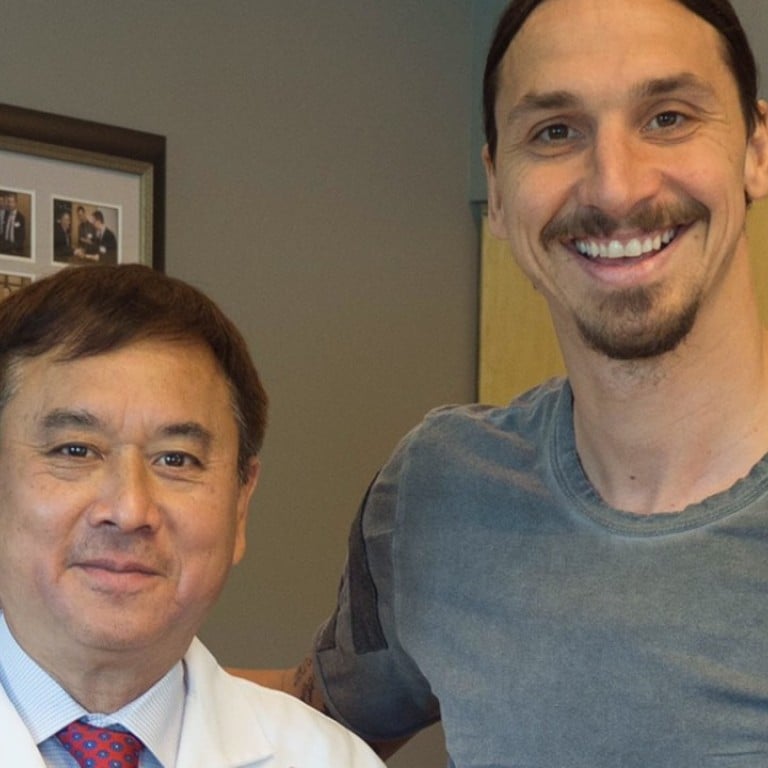
‘I’ll always belong to Hong Kong’ says Freddie Fu, the surgeon who saved Zlatan Ibrahimovic’s career
Though he’s lived in Pittsburgh for some 40 years, Hong Kong is still ‘home’ for the orthopaedic specialist who has been in the spotlight since operating on Swedish striker
Fu, 67, chairs the department of orthopaedic surgery at the University of Pittsburgh’s Medical Centre, having moved to the States in the 70s for university. He is something of a local celebrity in Pittsburgh, having worked for years with the city’s American football and ice hockey teams, but nothing prepared him for the worldwide attention he’s received since it was revealed that he would be charged with repairing the Manchester United superstar’s anterior cruciate ligament.
Fu and his colleague Volker Musahl fixed Ibrahimovic’s knee after fears the 35-year-old might never play football again. He has “many years” left at the top, said Fu, who was so impressed with the Swede’s physiology that he wants to open Ibrahimovic up again for research when the striker finally does retire.
After the Post revealed Fu’s Hong Kong connection – his family goes back 120 years in the city – some readers took umbrage at our description of him as a “Hong Kong surgeon”, given his career has been spent in the United States.
“You called me right, I’m very proud to be called a Hongkonger,” insisted Fu by phone from the world-renowned sports medicine facility he set up in the 1980s.
“I read some of those comments, jerky people – you tell them that I belong to Hong Kong, I always belong to Hong Kong, my family’s still there and I love Hong Kong, nothing will take me away from Hong Kong!”
Fu, one of five children, had a comfortable childhood on Bonham Road in the the city’s Mid-Levels, where his family has lived since ancestors emigrated from Foshan. His great-grandfather started a successful import/export business and his grandfather expanded into property, but when the time came that Fu might get involved, his father – whose own effort to study medicine failed after a year after Japan invaded Hong Kong and HKU was shut down – had other ideas.
“If I stayed in Hong Kong I might have done some of that real estate business but my father encouraged us not to,” he said.
“My grandfather had four wives and my great-grandfather had four wives, so it was a humongous family, many, many people, very complicated!
“My father told me that if you get into this family business it’ll be very complex, not simple. He said it’s better to be your own boss in that way.
“All the kids went overseas – my brother is a dentist and my older brother is an educator, he was dean at [Hong Kong] Baptist University and he’s just retired. So none went into the family business.”
Fu says he’s carried out 20,000 knee surgeries since his first in 1981, 6,000 ACL repairs. The Pittsburgh Steelers NFL team, the university’s Panthers American football team, and the Penguins NHL side are regular clients.
He’s been named one of the 100 most influential Pittsburghers of the 20th century, Person of the Year, and Pittsburgh Man of the Year; the city even named September 23, 2016 “Dr Freddie Fu Day” in his honour.
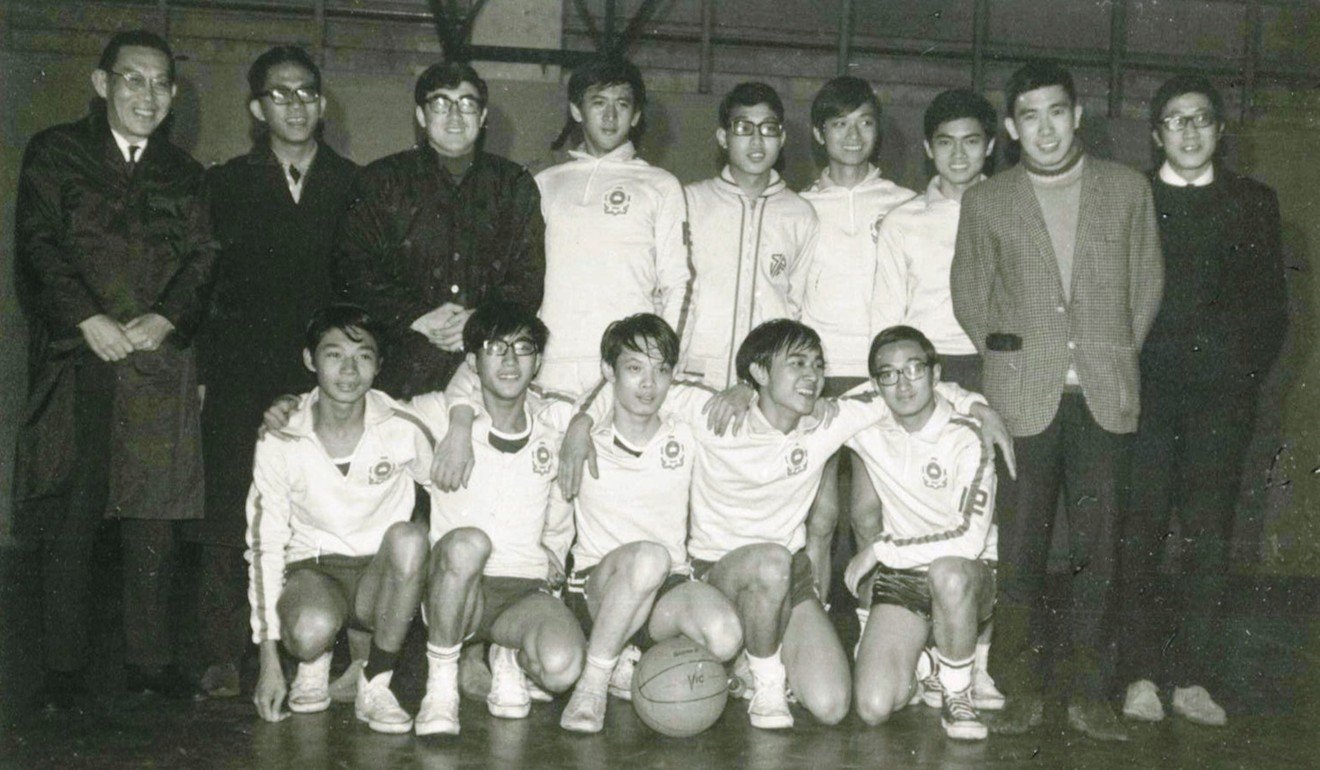
His love of sport goes back to his mother, a talented basketball player who was forced to stop playing after her father saw her picture in the paper.
Speaking at his office in the 60-acre US$80 million UPMC Rooney Sports Complex he set up and oversees, Fu’s voice ‘lights up’ as he recalls his own sporting glory days.
“I went to St Paul’s College and I’m very proud of it. Good teachers, good memories: I played on the basketball team, and we won the championship, beating Lingnan Secondary School – they’d won seven years in a row and we upset them in 1969!”
Fu studied at Dartmouth College and Dartmouth Medical School before heading to University of Pittsburgh on the recommendation of his dean, who was from Pennsylvania. He’s never left.
“People don’t know Pittsburgh that well in Hong Kong and I never thought about it, I thought I’d go to California or somewhere like that.
“We started this sports centre in the 80s, it was very humble, and now it’s one of the best in the world – we actually have two major sports centres within 20 miles of each other one mainly for football where I am right now and the other one for ice hockey.
“I’m also chairman of the department so I oversee the whole operation of the department, with 100-plus doctors involved in the orthopaedic surgery. It’s a very good institution and a very good business plan and they are successful financially, but they also do a lot of academic work and support.”
Fu’s wife, Hilda Pang, was a member of Tomorrow Seven, an all-girls’ singing group who had some success during the heyday of Hong Kong English Pop, the predecessor to Cantopop. Both are heavily involved in the local community in Pittsburgh.
“She went to St Stephen’s Girls College just near St Paul’s and was very famous with Teddy Robin, Joe Junior, Samuel Hui and those people, every other week they were on TV. They were like the Spice Girls of the 60s, they were all stunning.
“We met in Hong Kong the year I left but kept up a long-distance relationship and got married in ’74.”
Fu’s daughter, a law graduate from Columbia, is in the sports business, working for Major League Baseball, while his son got an MBA from Carnegie Mellon and is in marketing for a French company. There’s five grandkids from two to seven, and the lot regularly holiday back in Hong Kong, where great-grandma is still going strong at 94.
“You can’t believe how good my mother looks, she’s so fit, she remembers everything, every birthday, everybody gets a red package on their birthday!”
Curiously, local regulations mean Fu couldn’t come back to work in his native city even if he wanted to – or were still young enough – though he suggests teaching could be an option. But after the most high-profile operation of his career, he’s not interested in hanging up the scalpel yet.
“I’m 67, I still have a lot of energy, I run the place, I enjoy it and people seem to enjoy working with me – in America, unlike Hong Kong, there’s no retirement age, you can work here for as long as they think you’re fit to. I still enjoy the whole experience right now and I’ve got very good people working with me. We train a lot of people in Hong Kong though, at the last count we’d trained about 80 from China and Hong Kong.”
And having been embraced by Pittsburgh, Fu’s in no rush to return permanently to the city he still considers home – although he does have one criticism.
“This is the place that supported my academic mission and allowed me to grow as much as I can. I’ve been offered jobs in many quite famous places, but I’ve never wanted to go – but there’s not as many Asians here so the Chinese food hasn’t always been too good!”
Fu seems not to be joking when he mentions driving five hours to Toronto or flying to New York to get a proper taste of home cooking, though the situation is improving.
“There’s so many Chinese students coming to Pitt and Carnegie Mellon now, at least 5,000, that the restaurants are improving – but nothing like Hong Kong.”


